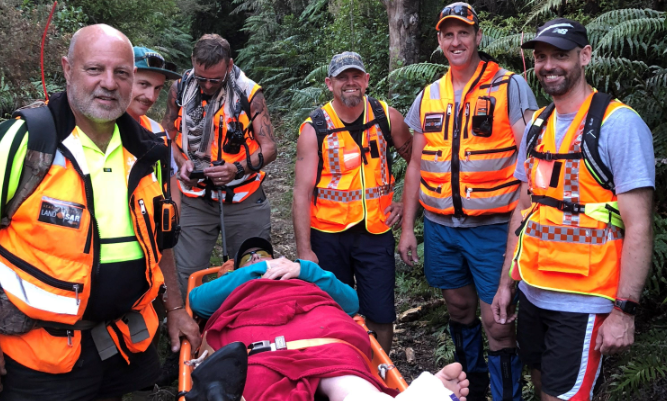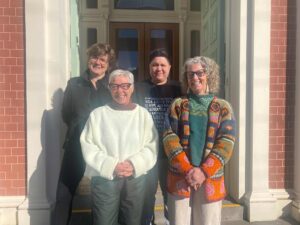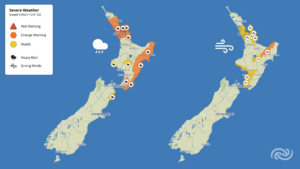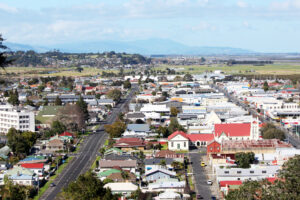For 50 years, Waihī Land Search and Rescue has been navigating rough, rugged – and oftentimes, urban – terrain to locate lost people.
They conduct searches as far as Whiritoa in the north and the Karangahake Gorge to the south, at times teaming up with neighbouring LandSAR groups around the Waikato. On December 10, they acknowledged their five decades of volunteer work by hosting a “brilliant” event at their new search and rescue base.
Deputy chair Wymond Symes said the team of 26 had been working out of the local police station, but after a few years of fundraising, they got enough money together to build their own operations and training base in Golden Valley Rd. The 50th celebrations were held at the base and included guests such as NZ LandSAR chief executive Carl McOnie and chief operating officer Tony Wells, as well as Waikato Police representatives Sergeant Alton Treml and Sergeant Warren Shaw.
Wymond, who moved from Auckland to Katikati around 2007, said the Waihī branch was a “smaller, more rural” group made up of a diverse bunch of people, aged between 30 and late-50.
“We work alongside the Police, so if there’s someone who is missing, lost, or injured, normally Police are the first to be notified, and they would then reach out to us for additional resources,” he said.

“The obvious [operation] people think of is a lost or injured tramper or hiker in the bush, but it’s far more broad than that.
“Probably, for every wilderness-type operation we have, we get an urban one. And an urban example might be a child or toddler going missing from their home, but probably the most common urban search we’d be called out to would be dementia-based wandering.”
Wymond said his love of being involved in search and rescue had strengthened over the years, and he now favoured the “investigative” side of the work.
“In the early years, I used to always go out into the field and do the physical search, but there’s also a management team behind every search,” he explained.
“That’s why we have our base – so we can set up all our mapping systems, our documents, everything we need for planning, and the real joy for me now is gathering information to help with that planning of the search.
“A really critical part of it is building a profile of the [missing] person, and there’s many ways you can do that.”

Wymond said this included categorising the person and rifling through published data for typical behaviour patterns, while LandSAR or the Police collected personal information from friends and family.
Meanwhile, the team would be out in the field, he said, sending clues or information back to the base.
“Some searches are resolved within the first five or six hours, but there are some that have gone on for several weeks… There’s also those that don’t get resolved.”
Wymond said the field teams were “really well-trained”.
There were nationwide trainings every weekend, while the Waihī branch trained on the first Tuesday of every month.
“We’re always open for new members,” he said.
DETAILS: Find Waihī Land Search & Rescue on Facebook, or visit www.landsar.org.nz.




